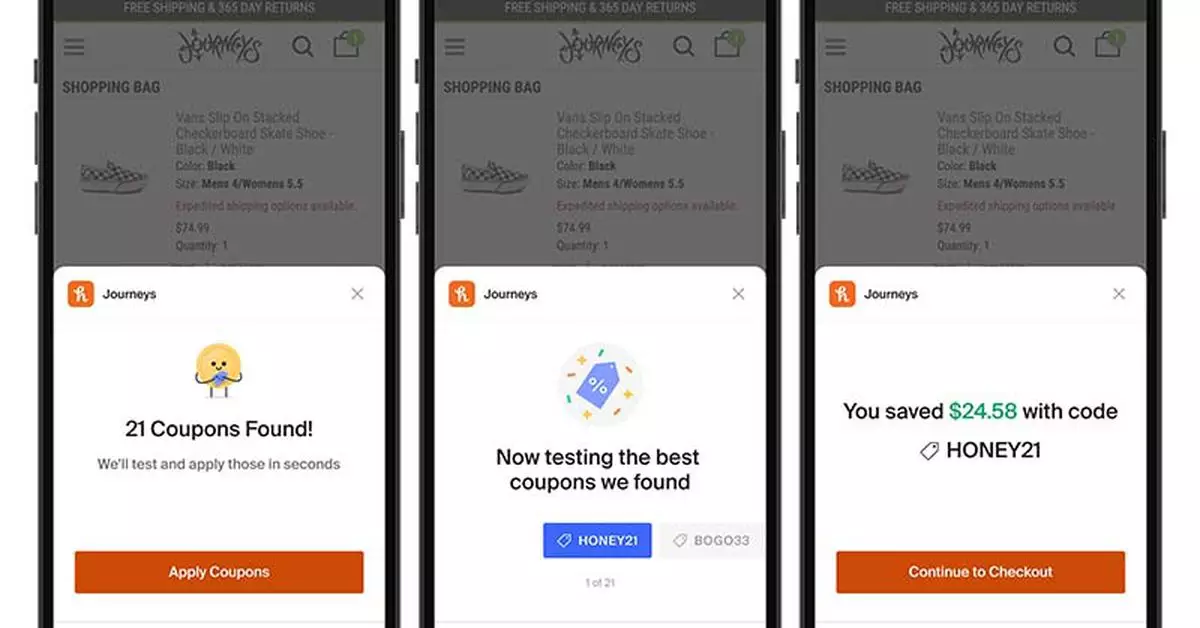In recent weeks, discussions surrounding the PayPal Honey browser extension have gained momentum, particularly sparked by a video from the YouTuber MegaLag. While advertised as a valuable tool for finding discounts while shopping online, accusations have emerged casting a shadow on its trustworthiness. Are consumers truly benefitting from this popular extension, or could it be delivering less value than expected?
PayPal Honey presents itself as an indispensable ally for online shoppers, claiming to automatically search for and apply coupon codes at checkout, thereby ensuring that customers secure the highest possible savings on their purchases. With the increasing prevalence of online shopping, platforms like Honey have become especially relevant, promising to ease the burden of manual price comparisons and discount hunting. The allure is straightforward: save money while you shop without lifting a finger.
However, a critical analysis of Honey’s effectiveness reveals a troubling gap between its promises and actual performance. According to MegaLag, Honey often fails to uncover real discount codes, instead suggesting its own less effective offers. In an era where consumers have access to numerous tools and resources for finding deals, Honey’s functionality becomes questionable when it allegedly overlooks more advantageous options.
What has truly raised eyebrows is MegaLag’s assertion that Honey detracts from influencers by hijacking their affiliate links. For numerous creators and small businesses, affiliate links represent a significant revenue stream. MegaLag argues that when users activate Honey during the checkout process, the extension replaces the influencer’s tracking link with its own, allowing it to claim the affiliate credit for the sale. This practice raises ethical questions about transparency and honesty in online advertising and affiliate marketing.
Critics have pointed out that many consumers are unaware of these practices and the implications they carry. If MegaLag’s assertions hold water, Honey not only diminishes the income of content creators but also misleads consumers into believing they’re engaging with their favored influencer when, in fact, they are unknowingly supporting a large corporation. Giant tech firms must tread carefully as they navigate the landscape of transparency, especially at a time when audiences expect authenticity and accountability from online brands.
In response to these claims, PayPal communications executive Josh Criscoe defended the practices of Honey, citing adherence to standard industry methodologies, notably last-click attribution. However, this explanation may not alleviate concerns for many in the online community who are already suspicious of large corporations taking advantage of perceived consumer trust.
The fallout extends beyond the individual influencer and impacts the broader relationships within the influencer marketing ecosystem. A prior statement from Linus Tech Tips, a tech-oriented YouTube channel, highlighted that they had terminated sponsorship with Honey due to similar complaints about its affiliate link practices. Such sentiments are symptomatic of bigger issues within the digital marketing world, where trust is paramount and missteps can lead to widespread backlash.
This controversy serves as a reminder of the delicate balance that exists between consumer convenience and corporate ethics. While tools like Honey undoubtedly provide value, the price of that service may involve a hidden cost regarding trust and revenue sharing among creators. As consumers increasingly rely on influencer recommendations, it becomes paramount for both brands and consumers to engage in practices that protect transparency and fair compensation for creators.
The saga of PayPal Honey is ongoing, with the potential for significant shifts within the marketplace guided by consumer awareness and ethical considerations. As shoppers become more knowledgeable about the dynamics of online mechanics—what is working behind the scenes and how it directly impacts their purchasing experience—there remains hope for a more equitable digital economy.
This discussion is a critical juncture for consumers and influencers alike, urging them to assess the tools they employ in their online shopping journeys. As investigations into Honey’s practices continue, consumers must stay vigilant and advocate for clarity and fairness in the tools they choose to depend on.

